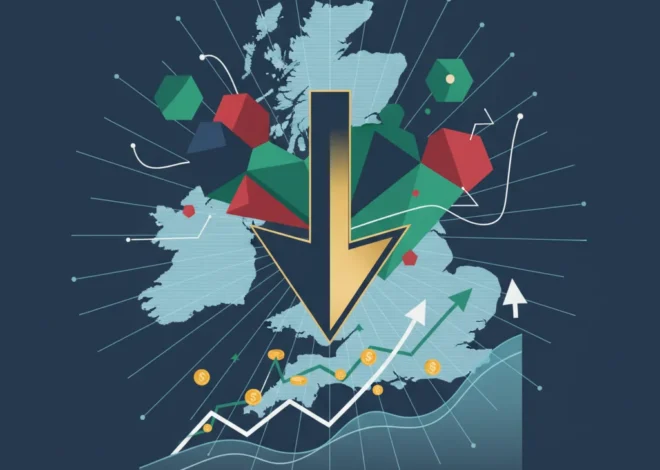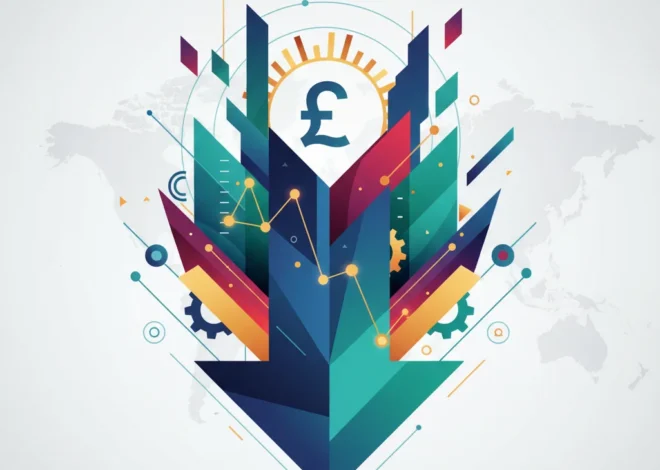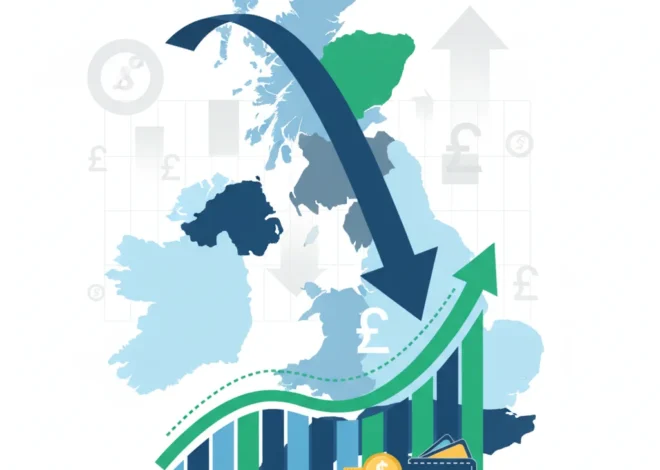
Red Island Alert: Why a Coup in Madagascar Matters for Your Portfolio
In the world of global finance and investing, seismic shifts often originate not from trading floors or central bank announcements, but from the volatile streets of distant nations. The recent news from Madagascar is a stark reminder of this reality. An army unit has reportedly seized power following weeks of intense protest, a development that came just a day after President Andry Rajoelina confirmed he had fled to a “secure location.”
While Madagascar may not be a G7 economy, this event is far more than a regional headline. For astute investors, finance professionals, and business leaders, it’s a live-fire drill in the critical discipline of geopolitical risk analysis. The ripple effects of such instability can impact everything from commodity prices and supply chains to emerging market sentiment and the very fabric of international economics. Understanding the mechanics of this crisis is not just an academic exercise; it’s a crucial component of navigating the complexities of our interconnected global economy.
The Anatomy of a Crisis: From Protest to Power Grab
The situation did not unfold in a vacuum. For weeks, the capital, Antananarivo, has been the epicenter of growing discontent. The protests, initially fueled by economic grievances and accusations of government corruption, escalated into a full-blown political crisis. The announcement by the military faction represents the culmination of this unrest, transforming a civil demonstration into a constitutional emergency. This transition from protest to a military takeover is a classic pattern in nations with fragile democratic institutions, and its consequences for the nation’s financial stability are immediate and severe.
The flight of the President is a critical inflection point. It signals a collapse of civilian authority and creates a power vacuum that invites uncertainty—the single most corrosive element in any market. International partners and investors are now left to question the legitimacy of the new self-proclaimed leadership, the security of their assets, and the future direction of the country’s economic policy. According to a World Bank overview, Madagascar’s economy, already grappling with challenges, was projected to grow, but such forecasts are now rendered obsolete overnight.
The Economic Fallout: A Cascade of Financial Consequences
Political instability is the enemy of economic progress. When a government is overthrown, the intricate machinery of a nation’s economy can grind to a halt. For Madagascar, the implications are multifaceted, affecting everything from grassroots commerce to high-level international finance.
1. Foreign Investing and Capital Flight
The most immediate effect is on foreign direct investment (FDI). Companies with existing operations in Madagascar now face unprecedented uncertainty regarding property rights, contract enforcement, and physical security. Planned investments will be frozen indefinitely. We can expect a significant wave of capital flight as both foreign and domestic investors rush to move their assets to more stable jurisdictions. This exodus drains the country of vital foreign currency reserves, putting immense pressure on the local currency, the Malagasy ariary.
2. Currency Devaluation and Banking System Strain
A plummeting currency is a near-certainty. As confidence in the country’s governance collapses, so does confidence in its currency. This devaluation will fuel inflation, eroding the purchasing power of ordinary citizens and destabilizing the domestic economy. The nation’s banking system will come under immense strain as citizens may rush to withdraw savings, fearing a total collapse. This can trigger a liquidity crisis, further crippling the financial infrastructure. The central bank’s ability to manage monetary policy effectively is severely compromised in such a chaotic environment.
3. Disruption to Global Supply Chains
Madagascar is a small economy, but it is a giant in specific global markets. Understanding its key economic pillars is crucial to grasping the international impact. Any disruption to these sectors will have a noticeable effect on global commodity trading and prices.
Below is a snapshot of Madagascar’s key economic contributors, which are now at significant risk:
| Sector/Commodity | Global Market Significance | Potential Impact of Instability |
|---|---|---|
| Vanilla | Produces ~80% of the world’s natural vanilla (source) | Severe price shocks in the global food and fragrance industries. Supply chain collapse. |
| Cobalt and Nickel | Key components for electric vehicle (EV) batteries and electronics. | Disruption to mining operations, affecting the global tech and green energy sectors. |
| Textiles and Apparel | A significant source of export revenue and employment, often tied to international trade agreements. | Order cancellations from major international brands, factory closures, mass unemployment. |
| Tourism | A growing sector based on the island’s unique biodiversity. | Immediate collapse due to travel advisories, security concerns, and reputational damage. |
4. The Stifling of Innovation: Fintech and Blockchain’s Lost Opportunity
In recent years, emerging markets have been fertile ground for innovations in financial technology (fintech). Mobile money and digital payment systems can leapfrog traditional banking infrastructure, promoting financial inclusion. However, this progress is entirely dependent on a stable regulatory environment, reliable telecommunications, and trust in financial institutions. The current crisis slams the brakes on any nascent fintech development in Madagascar. Furthermore, in environments where the central banking system fails, there is sometimes speculation about the rise of alternative systems like blockchain-based cryptocurrencies for value preservation. However, without stability and infrastructure, even these decentralized technologies cannot thrive, leaving the population with few viable financial alternatives.
The Investor’s Playbook for Geopolitical Earthquakes
For those involved in international investing and finance, events like the one in Madagascar are not black swans but recurring, if unpredictable, risks. So, how should one react? The key is not to panic, but to have a framework for analysis and action.
1. Re-evaluate Sovereign Risk Models: This event should trigger a review of risk weightings for other countries with similar political and economic profiles. Are your models adequately pricing in the risk of instability in other emerging or frontier markets? The principles of economics dictate that higher risk must be compensated by higher potential returns, and this event has just repriced risk upwards for an entire region.
2. Stress-Test Supply Chains: For business leaders, this is a wake-up call. Companies heavily reliant on single-source suppliers, whether for vanilla or cobalt, are now exposed. Diversification is not just a buzzword; it’s an essential survival strategy in a volatile world. The impact on the commodity markets could also present unique opportunities for savvy traders, but the risks are exceptionally high.
3. Monitor International Response: The actions of the African Union, the United Nations, and major economic powers like the US, EU, and China will be critical. The imposition of sanctions, suspension of aid, or refusal to recognize the new regime will deepen the economic crisis. These diplomatic moves are leading indicators for the market, signaling the long-term viability of investing in the country.
Conclusion: A Microcosm of a Macro Trend
The seizure of power by an army unit in Madagascar is a profound human and political tragedy for its people. For the global financial community, it is a powerful and humbling lesson in the interconnectedness of our world. It demonstrates that a deep understanding of economics cannot be divorced from the realities of politics and that even the most sophisticated financial models can be shattered by a single political event.
The stability of the global stock market and financial systems depends on a delicate web of trust, trade, and predictable governance. When a thread is cut, even in a place as seemingly remote as Madagascar, the entire web trembles. For investors and business leaders, the key takeaway is clear: in the 21st century, every political headline has a potential price tag, and ignoring geopolitical risk is a luxury no one in the world of finance can afford.


